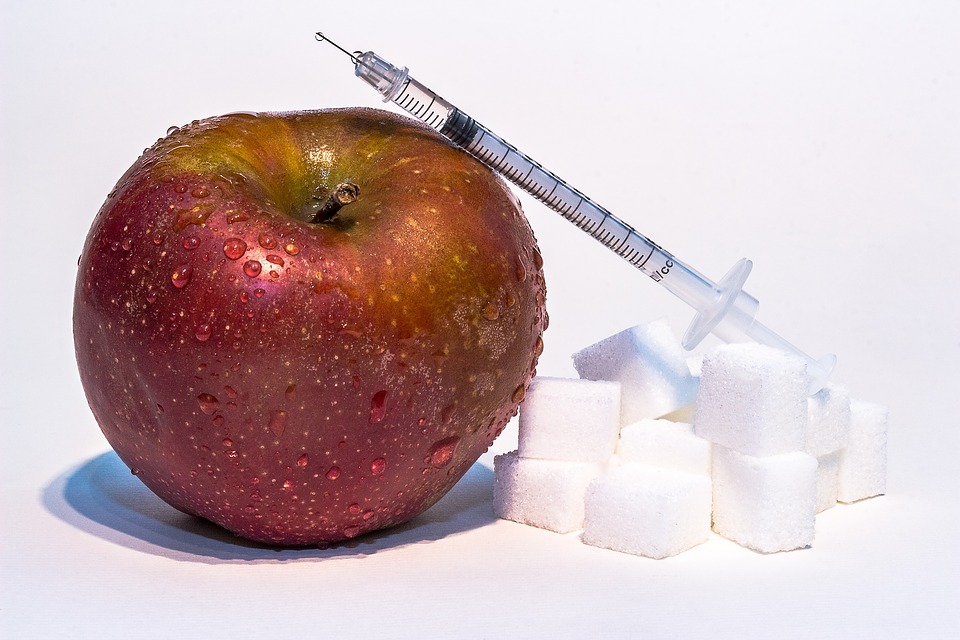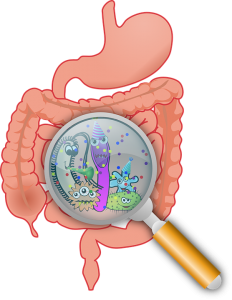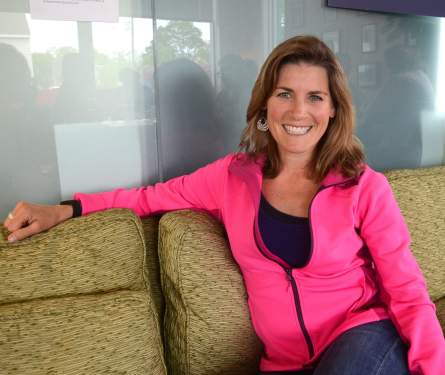By Georgianna Donadio, MSc, DC, PhD-
Whole Health Education promotes new thinking and a plan of action for taking control of your health and wellbeing. Do you ever wonder why, in spite of all your good intentions, you just cannot seem to take control over your health and wellness the way you really want to? The answer to that question can be found in the words of Albert Einstein, who reminded us “you cannot correct a problem with the same thinking that created it.” In other words, you cannot change old behaviors without new information.
The Institute of Medicine recently published a study that indicates ninety million Americans are “health illiterate,” which means we do not know how to interpret or use health information to control or improve our health, or prevent chronic disease. “Lack of information” was cited as the number one root cause of death. Understanding that there exists a cause and effect relationship between what we know and how we behave, we need a model of integrating this important information to change the behaviors that lead to chronic disease.
According to a seven-year Harvard Medical School study published in 1996, approximately 70% of all cancers and chronic conditions can be prevented through lifestyle changes. Furthermore, our diseases and conditions are primarily a result of stress, food, environment, attitude, emotions or beliefs that keep us perpetuating behaviors that lead to illness. Are we consciously choosing to be unhealthy, or do we just not understand sufficiently the relationship between what we think, how we behave, what we put into our bodies and how we keep ourselves well or make ourselves sick?
In a world exploding with health information, especially on the Internet, we are caught in the dilemma of having abundant amounts of information without a context through which we can understand and utilize it in a way that is appropriate for our own unique personal health needs. There is an urgent need for quality health education. Whole Health Education, developed over the past 28 years in cooperation with Boston physicians, nurses and educators, is an approach to health education that can transform our experience of the way we care for ourselves and others. Evaluated in a pilot cardiac rehabilitation hospital trial study in 2002 by Dr. Harvey Zarren at Union Hospital, North Shore Medical Center in Lynn, MA, Whole Health Education integrates evidence-based medical information with the wisdom of various spiritual teachings and a whole person overview of behavioral options.
How do we treat type 2 diabetes from a whole health approach? By providing individualized health information that explains the physical, emotional, nutritional, environmental and spiritual aspects of any health concern, Whole Health Education helps patients discern what information they are lacking about their health, what choices they can make to eliminate or control their health problems, as well as the best care options for their individual needs. It is a common sense approach to becoming our own best friend and personal healer by understanding the cause and effect our behaviors and choices have on our state of health. In this model, we become the center of our health and healing process, rather than the doctors or practitioners we go to for guidance and treatment.
Adult Diabetes
Mature onset diabetes affects approximately 18.2 million Americans and is the leading health concern in our culture today. As all chronic conditions are, mature onset diabetes is a multi-dimensional disease state. Restoration of health for those with chronic diseases such as diabetes is far more successful when a patient is educated about the many facets of their illness and treatment.
Physical and Structural
What happens on a physical and structural level with mature onset diabetes? Our nervous system, brain and the lungs must function with a certain metabolism of sugars within the body. In order to maintain this balance, insulin, a secretion of the pancreas, hooks onto sugar molecules and acts like a lock and key mechanism to bring sugars into the cell to be used as energy in the cycle of cell metabolism. Over time, when a person indulges in eating large amounts of insulin-provoking foods such as sugars and starches in the form of complex carbohydrates, the specialized beta cells of the pancreas which produce insulin can become incapable of producing adequate amounts of this critically necessary secretion. Serious disturbances occur when we do not have enough insulin to carry the sugar over the cell membranes.
Emotional and Social
Just as diabetes is a lack of appropriate and balanced nourishment on a chemical/nutritional level, so is it a disease of a lack of emotional nourishment on the psychological level. Current scientific research indicates a dynamic relationship between carbohydrates, overeating and a chemical called serotonin, a neuro-transmitter produced in our bodies that provides a feeling of wellbeing. Serotonin production is increased in the body when we overeat or consume complex, starchy carbohydrates, demonstrating a correlation between our body’s chemistry and emotional state.
The pancreas is one of the hardest working organs in our body. It is the “end organ” of digestion, providing numerous enzymes and hormones that allow us to assimilate or “take in” the outside world on a very cellular level. The pancreas is also a metaphor for our relationship with others and the world around us, as it literally allows us to take in, integrate and nourish ourselves from the macro to the micro level. In this regard, problems related to the pancreas, or the third chakra, relate to our relationships with self and others and our sense of belonging — the real sweetness of life. The pancreas also correlates with psychologist Abraham Maslow’s third hierarchy, which is the need to belong that connects us with each other, our family and our community or tribal bonds.
Often when we build our diet around starchy, complex carbohydrates or find ourselves craving them, this can be a way of “self-medicating” our emotional needs by eating foods that lead to increased serotonin levels as compensation for the lack of loving relationships or connections in our lives. Regardless of the emotional motivation, over time excess consumption of starchy complex carbohydrates and overeating can result in the pancreas not working as efficiently as it was designed to. This can lead to hypoglycemia (low blood sugar) or hyperglycemia (high blood sugar.) Paradoxically, if we are feeling the ups and downs of hypoglycemia or hyperglycemia, this may produce feelings of anxiety or apprehension that further undermines our emotional sense of wellbeing, security and self-esteem. The chronic anxiety that stems from these emotions often leads to more self soothing behaviors of overeating and elevated starchy carbohydrate consumption which eventually results in mature onset diabetes. When our feelings of poor self-esteem, a fear of not belonging, or a need for approval and acceptance are dealt with by “medicating” with serotonin producing foods, we are simply treating the symptoms. This masks the underlying emotional cause of diabetes and allows the feeling/feeding cycle to continue.
Chemical and Nutritional
The treatment for people with mature onset diabetes is to decrease the stress on the pancreas by making changes in diet — decrease starches and sugars and decrease calories. Eat less, eat right. What kind of a diet would be best for preventing this disease? Vegetables, vegetables, and more vegetables combined with lean proteins such as fish, chicken (for the vegetarian eggs or soy products), water, fruit and necessary healthy fats. For individuals who experience hypo or hyper glycemia, it is wise not to eat processed grains or sugar, which provoke an insulin response, but rather consume sprouted grain products which convert the grain glutens and non-digestible plant sugars into digestible amino acids and maltose.
Diabetes is an endocrine-related, systemic problem. A systemic condition is a body system problem — you do not just have a condition by itself, but one which affects interdependent body systems. The pancreas is related, through hormone interaction, to the adrenals, which in turn feed regulatory information back to the pituitary, thyroid and thymus glands, ultimately affecting the immune system. This chemical/nutritional interdependence is what makes diabetes such a serious health concern overall.
Environmental: Internal and External
The environments that we work in, live in or pass through daily have a significant impact on the way we feel about ourselves and in our bodies. Dr. Maslow brilliantly pointed out that human beings are herd animals — interdependent beings who seek the safety and comfort of the tribe. Belonging, being a part of a family or faith community are important needs of all human beings. When we are living or working in environments that do not value us, do not reflect back to us our contributions or embrace us as belonging to the group, we suffer from alienation and a sense of loss which can in turn lead to self-soothing behaviors such as starchy carbohydrate over consumption, smoking, drugs or alcohol abuse. Likewise, we must be able to slow down and listen to what our body’s internal environment is telling us, such as when we have eaten too much or too little of certain foods, when we need to rest, relax and take time for self-care. When we choose to ask questions about what might be the unconscious cause of our behaviors — either emotional or physical — we can process this information to liberate unwanted unconscious conditioning.
One of my patients recently had a transformational experience using this listening exercise. A devoted environmentalist, Linda would become angry and upset whenever she saw someone throwing away bottles or cans instead of placing them in available recycle bins. She would pick up the discarded container and boldly put it in the recycle bin, glaring at the offending stranger as she did this. Unfortunately, her anger and frustration would leave her with an emotional and physical “hangover” — upset stomach, aching head and a strong desire for chocolates and anything starchy. In facilitating Linda’s process of understanding her pattern, she was invited to explore the question, “What does it feel like when I see someone ignore recycling efforts?” The answer surprised Linda because what she felt was that she, personally, was not being valued or respected. She was able to trace the feelings back to having her “Earth Mother” values mocked in high school, not only by her peers but by her siblings as well. She was then able to understand why she reached for chocolate, which contains phenylalanine, an amino acid our brains produce when we are feeling loved and satisfied. This is the reason chocolate has long been associated with Valentine’s Day, because of its biochemical mimicking of the “love protein.”
Spiritual and World View
It is said that there is only one disease: the disease which comes from separating oneself from the awareness that we are one tribe, one family. When we lose our connectedness to one another, competition becomes commonplace. Competition creates isolation, and isolation leads to dis-ease. The spiritual challenge presented by hypoglycemia and diabetes appears to involve our need to belong to the tribe, and how we choose to behave towards ourselves and others. The drama that is creating the one-up or one-down dynamics of our highly competitive, materialistic society can lead to the self-soothing and behavioral issues which contribute to the development of mature onset diabetes.
The renowned anthropologist and writer, Joseph Campbell, stated that, “all human beings have three essential questions they seek answers to: Why am I here? What is the purpose of my life? Where do I go when I die?” Our attempts to answer these questions form our worldview, our spirituality or faith in the unknown. Faith requires trust in the unseen and provides us with a tool that puts order in our universe and allows us to formulate purpose and meaning for our lives.
How do we learn to trust in this mysterious order of the universe? Various ancient spiritual teachings suggest we can achieve this state through trusting the order of our inner universe. We do this by setting boundaries — codes of conduct regarding how we are going to behave, eat, work, exercise and live. If we do not violate our own boundaries, we are less likely to violate others’ boundaries or to let anyone else violate ours. Krishna’s ancient dictum — “The best way to help mankind is through the perfection of yourself” — gives us affirmation that when we heal ourselves we heal the world.
For more information on integrative whole health and nutrition, Watch Two Hours of FREE Whole Health Course Excerpts.



 What makes one nervous system different from another, one person’s experience different from another? It has more to do with the unconscious personality of an individual than any other single factor, with the exception of the rare congenital or pathological occurrence.
What makes one nervous system different from another, one person’s experience different from another? It has more to do with the unconscious personality of an individual than any other single factor, with the exception of the rare congenital or pathological occurrence.





